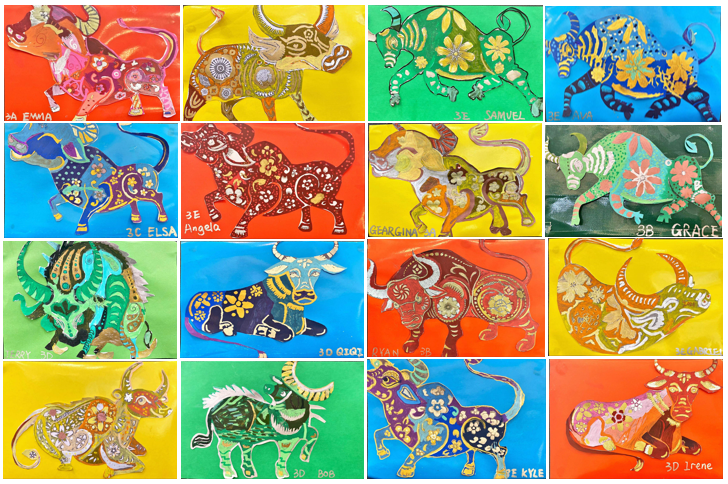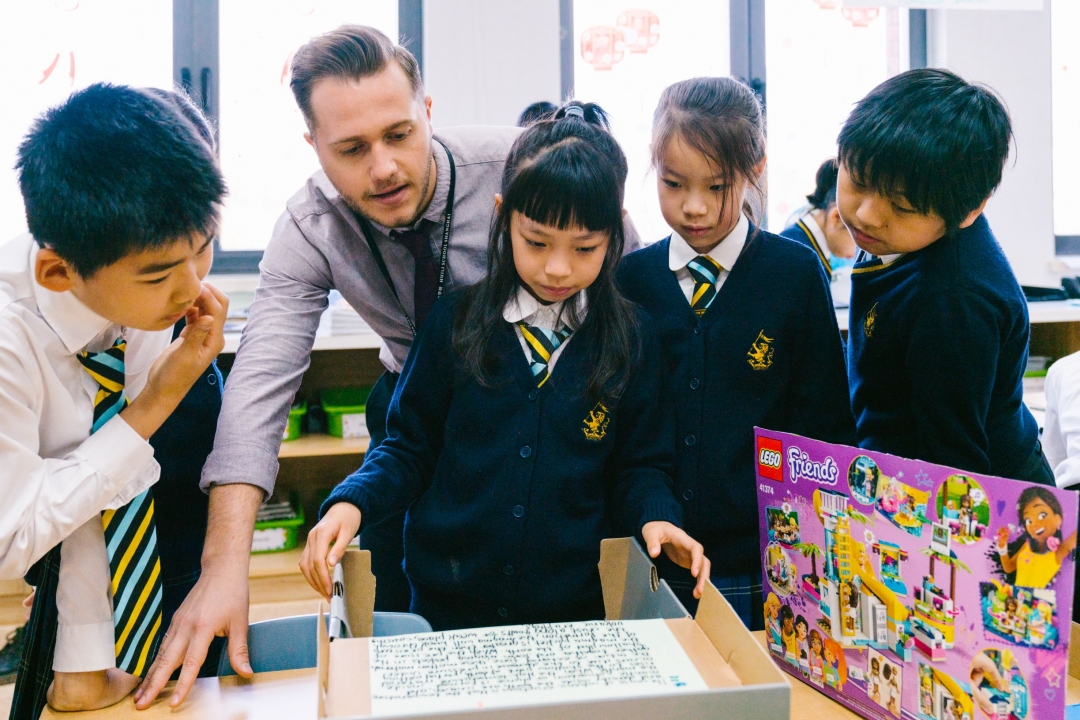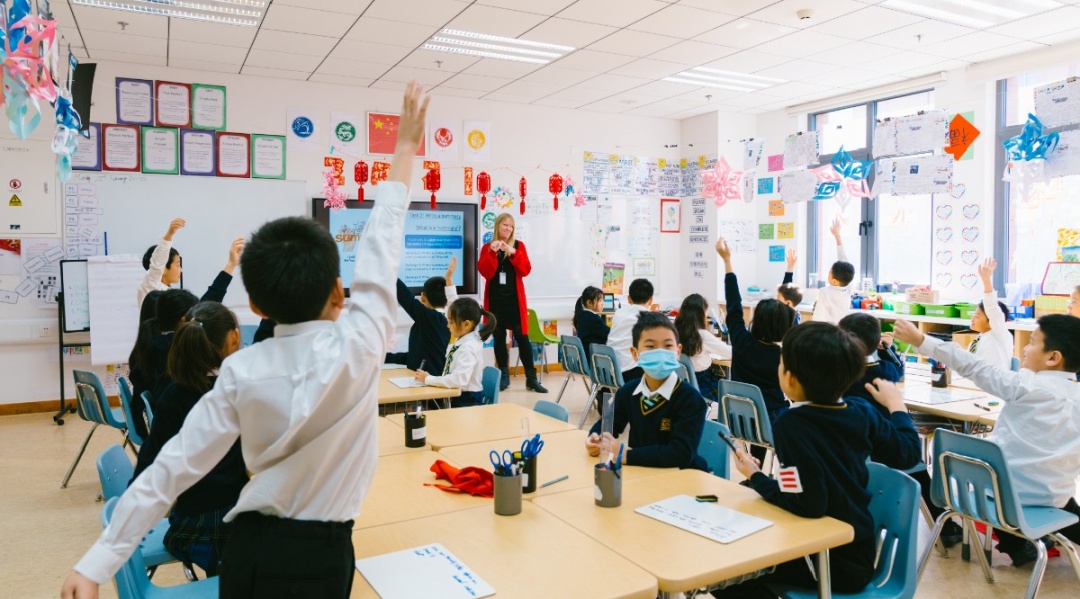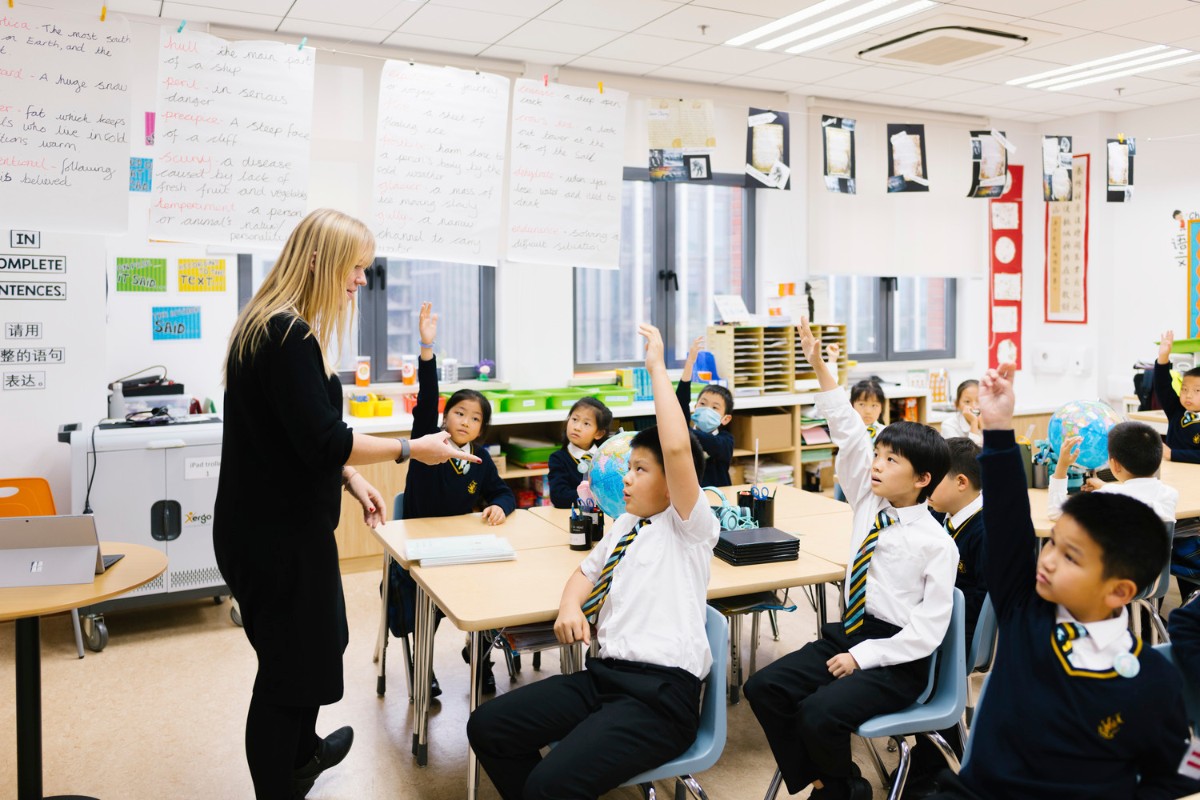

Penelope Mulholland
Deputy Head Pastoral
It is my honour to welcome everyone back to school by writing the first WeChat article of the second semester. The return to school was welcomed by all our community and the atmosphere has been charged with enthusiasm and positive energy

Rigorous operational preparation for the start of the new semester began over the holiday with deep cleans, safety inspections, rebeautification of some outdoor spaces and freshening of the school interior. The visual arts team have also spent many hours installing stunning artistic creations which had been produced by the children during semester one. Meanwhile, teachers spent much of the holiday planning exciting lessons, reviewing pupil progress and identifying the next steps for those in their charge.

Hiba Students' CNY Visual Art Works
The First Lesson for the new semester
Life at Hiba never stands still.
For this first article, I wanted to focus on one of our key aims: to ensure that every child is nurtured, every member of the Hiba family is valued, and everyone who enters the campus experiences a sense of kinship; everybody matters at Hiba and everybody has a part to play in shaping the future for children in our care.

Source: Maslow, Abraham (1954) Motivation and Personality
Wellbeing
The ‘broad educational offer’ and ‘commitment to children’s wellbeing’ are two of the reasons parents often cite when choosing Hiba for their child. Many will expand on their motivation by explaining that they want something different from the schooling they experienced as a child themselves, or even from their child’s own previous setting.
‘Educating the whole child’ is a phrase used regularly by educators and is not exclusive to Hiba. The notion of what a ‘well-rounded’ child looks like can be clearly envisaged: one who is intellectually inspired and has a wide range of interests and/or aptitudes - perhaps in a creative or sporting sphere. It is evident that almost all Hiba pupils reflect this balanced image.

At Hiba, we strive to look beyond the child to the adult they will become; success will not (and should not) only be measured in intellectual, creative, or sporting accomplishments. It is for this reason that our renowned wellbeing programme (which permeates school life and is not limited to a timetabled lesson) aims to develop traits in our children which will be manifested in the way in which they interact with those they meet in the years ahead. The programme is built on Maslow’s model (above) and seeks to foster an understanding about the importance of wellbeing in supportive communities. The aim is for Hiba’s future alumni to explicitly demonstrate the following characteristics:
Kindness
Children who are taught to understand and recognise the value of kindness and care will have a positive impact not only in their own families, but in their local community and in the wider world. Small, almost imperceptible kindnesses which are motivated by a desire to serve and assist rather than to receive recognition, have a ripple effect which can be perceived far and wide. Choices which are based on an assessment of the potential outcomes for others illustrate compassion and empathy and show an awareness of another’s needs.
Kindness should be as natural as breathing, and its driver is empathy.
Positive Communication Skills
Verbal communication can be either amplified or diminished by the actions which accompany it. It is as necessary to be willing to listen to the opinions of others as it is to articulate one’s own ideas. Good communication skills require practice in both consequential and inconsequential exchanges of thoughts; it is not necessary for every conversation to have an ‘agenda’ or ‘objective’. Natural conversation with your own children at home will inevitably yield more information than any number of interactions which begin with a direct question, especially if they take place whilst you are involved in a common activity (perhaps playing LEGO, completing a jigsaw, or even washing dishes after a meal).
To listen and to be heard (as often as possible) will sow the seeds for growing future effective, empathetic communicators, and active listening is as important a skill as the ability to convey information.
Curiosity
An inquiring mind is one of the most important features of a lifelong learner; it is as important for building strong relationships as it is for forging academic and career success. Academically, of course, success will be enhanced if the learner has a thirst for knowledge and is always striving to find out more; there is no such thing as a ‘finished’ task. Learners who ‘wonder’ and hypothesise about alternative realities also begin to understand that there is always more to find out. This trait also applies to a curious friend, sibling or colleague – being able to identify a changed demeanour or mood in others can lead to insights about their wellbeing or state of mind, and in turn can provide an opening for being able to offer support.

Adults often unwittingly convey a sense of being ‘all-knowing’ to children, and occasionally this can limit the extent to which children are motivated by a desire to find out for themselves. It is powerful when adults demonstrate unfamiliarity - or even ineptitude - as it offers an opportunity to demonstrate an, “I am not sure, but let’s find out together” attitude.
A recent article which resonated with me was entitled ‘The Importance of Being Curious’, and was written by Dalia Molokhia, a senior learning solutions manager at Harvard Business Publishing Corporate Learning Blog, in which she advised:
- Apply a beginner’s mind: Be open to and look for new and novel ways of doing things.
- Ask questions, listen and observe: Seek first to understand, not to explain.
- Try something new: Take a different route to work, read a book in a genre you usually avoid, go to an art gallery you wouldn’t normally go to. Each of these activities opens your mind to new points of view.
- Be inquisitive: Ask others their opinions, perspectives, and their approaches to certain things. Everyone does things a bit differently, and there are potential new answers and solutions to problems hidden in other people’s thinking.
Curiosity encourages an open mindset; a vital asset in the world our children will inhabit as adults where it is likely there will be careers in fields which have not yet been imagined.
Deep Dives and Adventurous Explorations
Memorising facts, whether it is recognising ‘whole words’, rather than applying phonic skills in lower primary, or recalling ‘what’ occurred without being able to explain ‘why’ in science or history in junior high, will be limited by the capacity to remember information. At Hiba, the promotion of metacognitive and critical thinking skills aims to equip even the youngest children with a ‘toolkit’ to enable them to:
- Identify what they need to know
- Plan and initiate tasks independently and responsibly
- Gather and organise the materials they will need
- Manage their time and the space in which they work, be it a desk in the classroom or their bedroom at home
- Recognise mistakes and adjust accordingly
- Be able to recognise success and modify future approaches accordingly
The key to successful education is to balance depth with breadth.
A Moral Compass
Honesty in both academic and general life is a marker of integrity; care for people and the environment is a marker of respect. Those who are recognised as embodying integrity will gain respect from and be trusted by those who know them. Sometimes, it will be necessary to be honest about one’s own errors of judgement; occasionally it will be necessary to hold other people to account for their actions. Having a strong moral compass is not always easy; it takes courage to be true to oneself, especially when the right path may be the route with the most challenges.
Looking to the Future
In 2018, when Hiba first opened its doors, nobody envisaged the seismic events which would test the resilience of the school community in 2020, let alone that we would continue to be affected by fresh waves of the challenges placed in our path by the global pandemic. It is testament to the commitment and faith of our Hiba family that children have still been able to access learning, and teachers have still been able to teach. Online lessons have been punctuated by children’s questions and wonderings; teachers have developed new methods to engage learners.

None of us knows how long we will continue to face the shifting hurdles which have changed the way we teach and learn but there is one thing of which we can be sure – that strength of character and determination to succeed will define this period and help to forge the positive and enduring qualities of the Hiba graduates of the future.